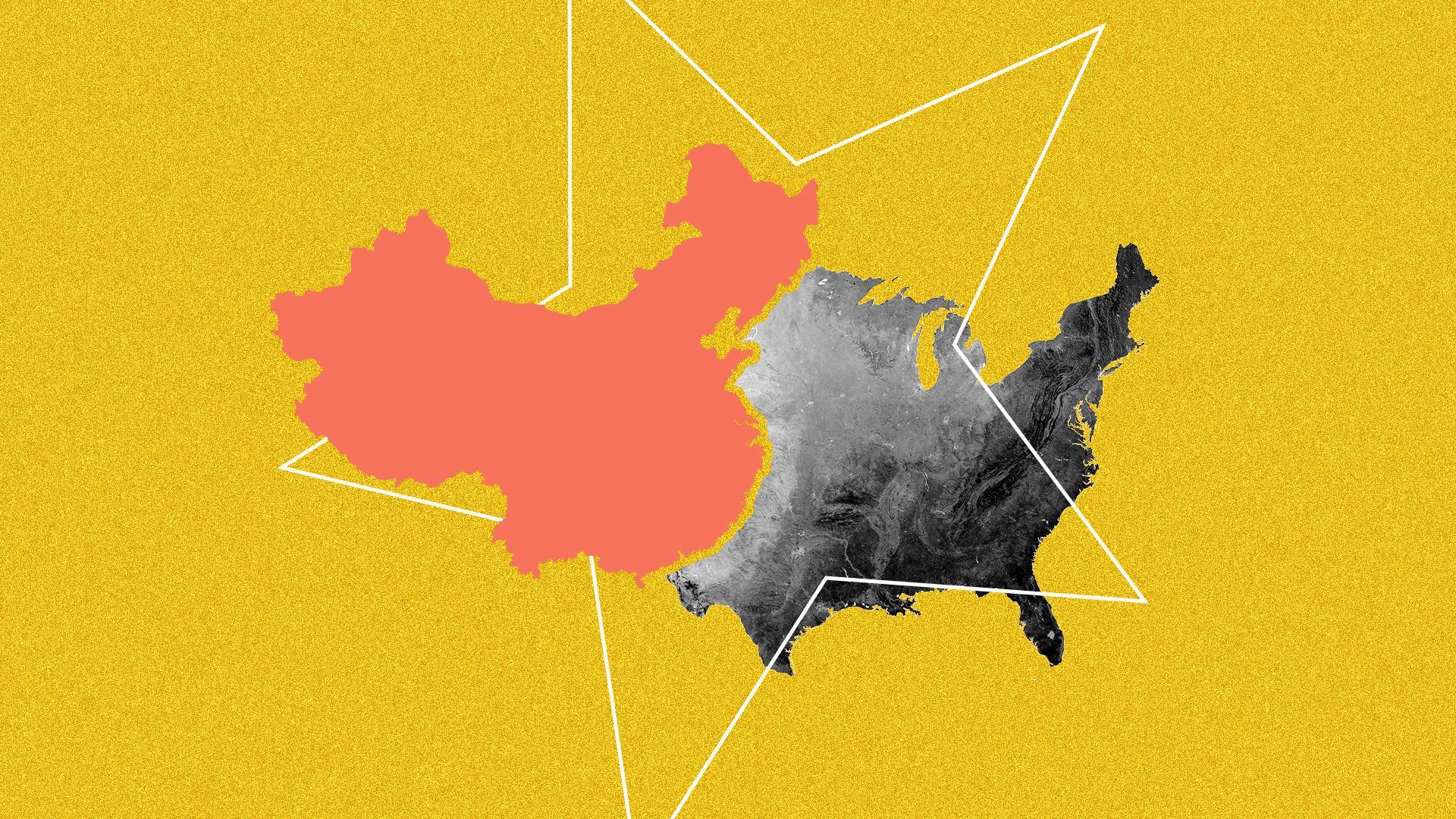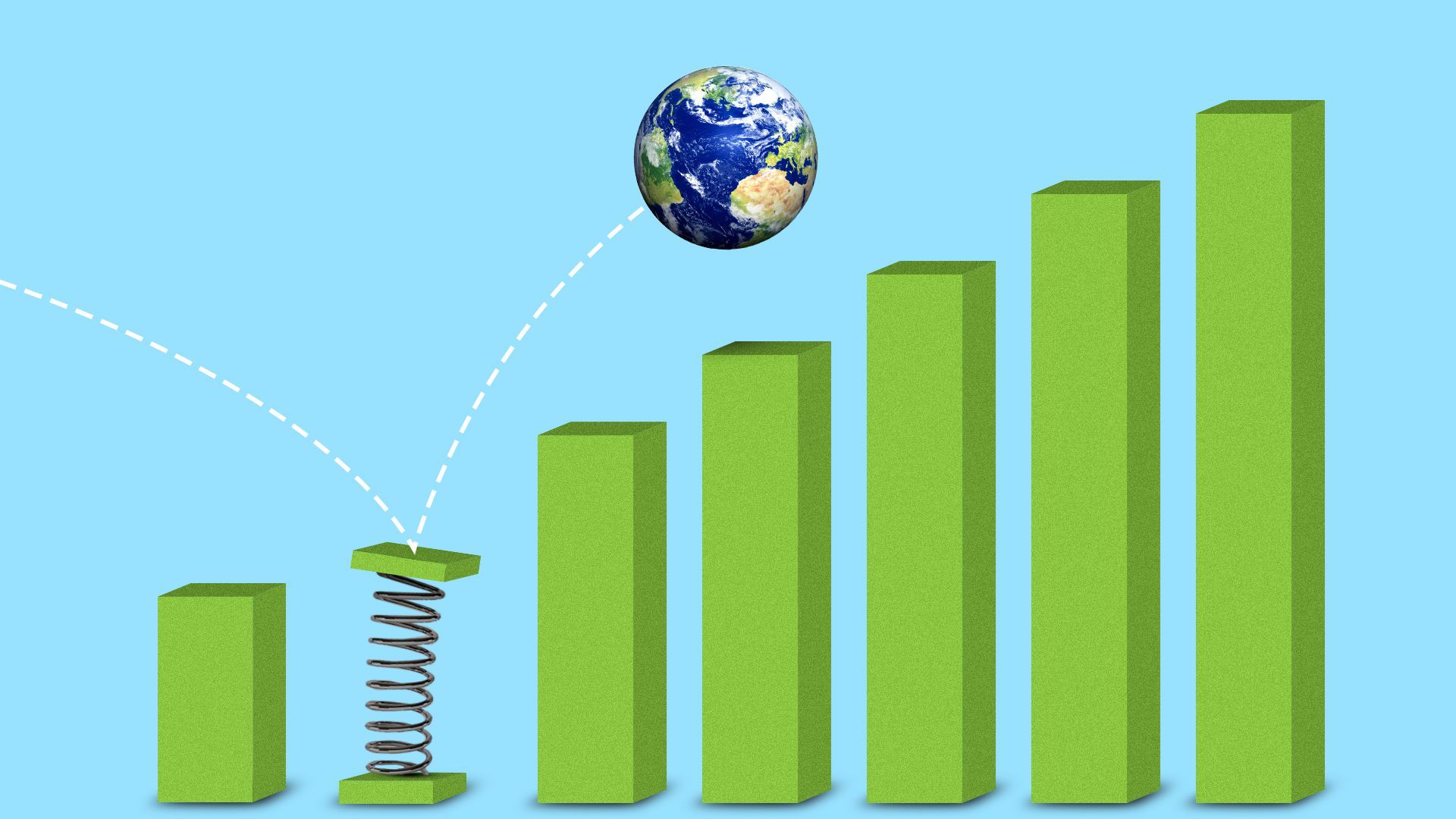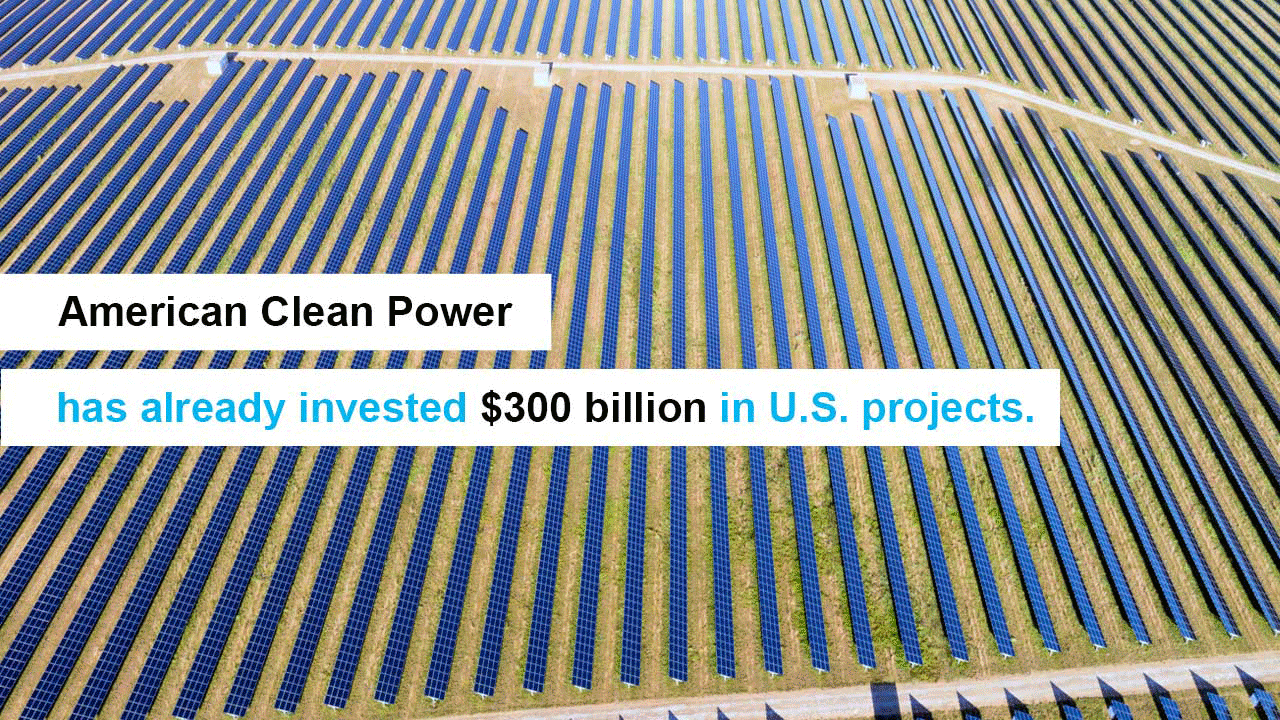| |
| |
| |
| Presented By American Clean Power |
| |
| Generate |
| By Ben Geman ·Mar 22, 2021 |
| Welcome back! Today's Smart Brevity count is 1,264 words, < 5 minutes. 🎸 And Friday will bring the birthday of Aerosmith's Steven Tyler, but we'll celebrate early with today's intro tune... |
| |
| |
| 1 big thing: The fraught U.S.-China climate relationship |
 |
|
| Illustration: Rebecca Zisser/Axios |
| |
| The last 72 hours highlighted hurdles and opportunities for U.S.-China cooperation on climate at a time of very deep divisions over human rights, cybersecurity and more. Driving the news: Chinese state media, in a weekend readout of high-level U.S.-China talks in Alaska on Thursday and Friday, said one outcome of the multitopic meeting will be a "joint working group" on climate. But yesterday a State Department spokesman told Axios' Fadel Allassan: "The two sides discussed the climate crisis but did not form a formal working group." Why it matters: China is by far the world's largest carbon emitter and the U.S. is the second-largest. - Sure, the planet's fate doesn't rest on whether there's indeed a "formal" new working group.
- But the wider trajectory of U.S.-China cooperation — or division — is very important for reining in emissions.
The big picture: Right now, that relationship is very strained, as revealed by the tense talks in Alaska last week. - "We certainly know and knew going in that there are a number of areas where we are fundamentally at odds," Secretary of State Antony Blinken told reporters afterward, citing areas like China's abuses of Muslims in Xinjiang.
- But he also cited areas where "interests intersect" — including climate. And more broadly, there are other modest signs of collaboration thus far. The U.S. and China are co-chairing a reconstituted G20 Sustainable Finance Study Group.
- And John Kerry, President Biden's special climate envoy, has long known Xie Zhenhua, who is back for another stint as China's top climate diplomat.
What's next: A Wall Street Journal piece this morning looks at a multination meeting on climate tomorrow that China will lead and will include Kerry and Xie. - "Given the tensions, the Kerry-Xie interaction marks a test of the Biden administration's China strategy, which looks to carve out cooperation on issues like climate change and the Covid-19 pandemic while the two powers compete for global influence and the control of critical technologies," it reports.
A little further out, President Biden is hosting a high-level global climate summit on April 22. It will offer another moment to take the pulse of the U.S.-China rapport. - Li Shuo, a Greenpeace expert on China, said via Twitter that while climate was among the few areas of "convergence" in Alaska, the talks "certainly made an early breakthrough more difficult."
- "Beijing needs to make tough decisions now on what to bring to the April 22nd climate summit," he said.
The intrigue: One question is when China will fill in policy blanks on its 2020 vow to become carbon neutral by 2060 — and whether it will pledge tougher near-term efforts beyond what's already been announced. - Alden Meyer, a senior associate with the climate think tank E3G, tells me he's watching to see what China does in the run-up to critical UN climate talks in Scotland late this year.
- But Meyer said U.S. officials are "not really holding their breath" for any big announcements from China at Biden's summit next month.
|
    |
| |
| |
| 2. The oil recovery loses ground |
 Crude oil prices are largely treading water this morning after steep declines last week, which you can see in the chart above. Why it matters: The pandemic's persistence is creating headwinds. Oanda analyst Sophie Griffiths, in a note this morning, said there are "growing concerns over future demand as fresh lockdown restrictions are implemented in Europe." Yes, but: Bloomberg's look at the market this morning notes there's "continued optimism over consumption in the U.S. as the Biden administration unleashes a wave of stimulus." |
    |
| |
| |
| 3. How stalling growth hurts the planet |
 |
|
| Illustration: Aïda Amer/Axios |
| |
| Axios' Bryan Walsh reports: Some environmentalists and economists are pushing for "degrowth" — stabilizing or even shrinking the economy — to avert environmental catastrophe. The big picture: Degrowthism may seem like the only reasonable response to the climate challenges we face, but the experience of enforced economic shrinking during the pandemic indicates the pain would outweigh the benefits — especially for the world's poorest. Where it stands: The global economy shrank by an estimated 4.3% in 2020, according to data from the World Bank. - That contraction was due both to the direct pain of the pandemic and the effects of social distancing measures, but it also led to a roughly 6% reduction in global carbon dioxide emissions — the biggest annual drop since WWII.
Why it matters: However accidental, 2020 represented perhaps the best example we've ever experienced of degrowthism in action. - For degrowthers, simply cleaning up the global economy by switching from fossil fuels to zero-carbon sources of energy isn't enough. Economic growth — the goal of essentially every government everywhere — is itself the problem.
- The movement now has its own academic journals, associations and conferences.
The catch: The human pain of 2020 — and the political fallout it created — should be taken as a warning sign to degrowthers. - A new Pew Research Center analysis found the ranks of the global middle income fell by 54 million in 2020 compared to the number projected before the pandemic, while the number of global poor rose by 131 million.
- And while emissions did fall significantly in 2020, the decline came at a high cost. One analysis estimated that each ton of CO2 reduced due to pandemic-related degrowth will have an implied cost to the economy of more than $1,500.
Read the whole story |
    |
| |
| |
| A message from American Clean Power |
| America's lowest-cost, fastest growing source of power |
| |
 |
| |
| From cost-effective solutions to the climate crisis, to massive investments in the American economy and job creation, American Clean Power's members are turning America's enormous clean power potential into reality. Learn more about what's next for ACP at cleanpower.org |
| |
| |
| 4. Beltway notes: White House and the SEC |
| People: "The White House has appointed Jane Lubchenco, a well-known marine scientist at Oregon State University and former head of the National Oceanic and Atmospheric Administration, to a high-level position coordinating climate and environmental issues within its Office of Science and Technology Policy (OSTP)." (Washington Post) Oil-and-gas: "The US Securities and Exchange Commission has directed two of America's biggest oil companies to hold shareholder votes on far-reaching new emissions targets, as the regulator adopts a tougher approach to climate under the Biden administration." (Financial Times) |
    |
| |
| |
| 5. A politically charged battery fight |
 |
|
| Illustration: Sarah Grillo/Axios |
| |
| Axios' Joann Muller reports that a battle between two Korean electric vehicle battery makers has become a political headache for the Biden administration. Catch up fast: LG Chem accused a rival, SK Innovation, of stealing its EV battery technology and hiding the evidence. - Last month, the U.S. International Trade Commission sided with LG Chem, restricting SK from importing critical components for lithium-ion batteries for 10 years (with some temporary exceptions).
- SK now says it might have to halt construction of a $2.6 billion battery plant in Georgia — erasing the promise of 2,600 clean energy jobs that came with it — unless Biden intervenes.
Why it matters: Presidential vetoes of ITC decisions are rare, but Biden is under pressure to protect green sector jobs in the newly Democratic state — especially because SK's batteries would power U.S.-built EVs from Ford and Volkswagen. He's also trying to strengthen U.S. supply chains for EVs. What's happening: The lobbying effort is heating up. Georgia Gov. Brian Kemp, a Republican, and Sen. Raphael Warnock, a Democrat, have urged the White House to protect jobs in their state. - Last week LG responded with a newspaper ad in Georgia accusing SK of "trying to hold Georgia hostage" while dangling the prospect of building its own battery plant there.
- LG already has a big presence in Michigan and Ohio — two other important swing states — and announced a $4.5 billion U.S. expansion last week.
What to watch: The case will be reviewed by newly sworn-in U.S. Trade Representative Katherine Tai. |
    |
| |
| |
| 6. Quote of the day |
| "It was sort of like we were leading with our chin." Who said it: The Environmental Defense Fund's Nathaniel Keohane, telling Rolling Stone about various forces that felled big climate legislation in 2010. The context: He's discussing emphasis on the bill's "cap and trade" system. - "I think we sort of talked ourselves into thinking, 'Boy, we can point to this great policy mechanism,' rather than leading with all the great things that are going to happen if we address climate change in this country."
Why it matters: The deeply reported story explores the history of that plan and Democrats' strategies today. |
    |
| |
| |
| A message from American Clean Power |
| America's lowest-cost, fastest growing source of power |
| |
 |
| |
| From cost-effective solutions to the climate crisis, to massive investments in the American economy and job creation, American Clean Power's members are turning America's enormous clean power potential into reality. Learn more about what's next for ACP at cleanpower.org |
| |







No comments:
Post a Comment